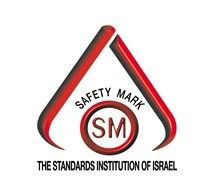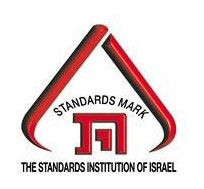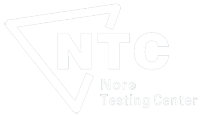|
Middle East CertificationIsrael SII certification Introduction to Certification According to Israel's Standards Act of 1953, The Standards Institution of ISrael (SII) is Israel's official standards agency. SII is a non-governmental organization, but it is directly managed by the Israeli government. Under the leadership of the Israeli Ministry of Industry, Trade and Labor (Ministry of Industry and Trade), it is responsible for standard setting, certification and product testing to ensure that products produced or imported in the country meet quality requirements . So far, SII has promulgated and implemented as many as 3000 Israeli standards, and the standard code is represented by "IS". For controlled electronic and electrical products, in accordance with regulatory requirements, starting from January 1, 2005, SII certification must be applied for and obtained as a customs clearance and sales pass. Product Range According to the "Standardization Law", Israel divides products into four levels according to the degree of harm they may cause to public health and safety, and implements different management: Category I is the most dangerous products for public health and safety, such as household appliances, children's toys, pressure vessels, and portable foam fire extinguishers. Category II is products with a medium degree of potential danger to public health and safety: including sunglasses, balls for various purposes, installation pipes, carpets, bottles, and building materials. Category III is products that pose low risks to public health and safety: including ceramic tiles, ceramic sanitary ware, etc. Category IV is for products that are only for industrial use and not directly facing consumers: such as industrial electronics. application process 1. Standards Mark certification: Voluntary + Compulsory Certification. In principle, it is voluntary certification, but compulsory certification requirements are implemented for Class I products. 1) Compulsory products include: Class I products, including storage solar water heaters, plugs and sockets, lamps, ballasts, lamp holders, household gas appliances, portable electric immersion heaters, electric kettles, fire extinguishing devices, washing machines, refrigerators, Air conditioners, household heating/cooking/frying appliances, elevators, electric blankets, primary battery packs, etc. Please confirm with Waltek whether it is within the mandatory range. 2) Certification procedure: SII product test + SII first factory inspection + SII annual factory inspection = SII certificate 3) Logo: as shown below:
2. Safety Mark certification: voluntary certification. It is also mainly for class I products. The main function of applying for this certification is to reduce the customs inspection procedures and enter the market in a short time. Unlike standard mark certification, safety mark certification does not require factory inspection. 1) Compulsory products include: Class I products. Please confirm with Waltek whether it is within the mandatory range. 2) Certification procedure: SII product test = SII certificate 3) Logo: as shown below:
3. Type Approval of SII Type Approval: The currently widely adopted method. After the application is approved, the mark will not be granted, but the products are allowed to be imported and sold after the customs conducts the compliance inspection before shipment. No inspection requirements. 4. SII Shipment Inspection: When the goods arrive at the port, the Israeli customs will test and inspect the products batch by batch. This method is more risky. Certification mark
other information Technical information: voltage frequency AC230V, 50Hz, plug SI 32 Mandatory: mandatory + voluntary Certificate validity period: 1~4 years, based on product Factory inspection requirements: only SII standard certification requires factory inspection Requirements for the holder: a local agent is required Saudi Arabia certification SASO COC certification Introduction to Certification In order to ensure public health, consumer safety and national security, the Saudi Ministry of Commerce and Industry MOCI began to implement the ICCP plan in 1995. On September 30, 2003, MOCI promulgated and implemented a new Product Compliance Certification Program (PCP), which replaced the ICCP program, broke the monopoly mechanism of the ICCP program, and introduced a third-party evaluation agency and third-party laboratory. Saudi Arabia's latest requirements: 1. The conformity certificate issued for goods exported to Saudi Arabia should be based on the test report issued by an accredited laboratory; 2. CoC can only be issued to products produced by factories licensed or registered by the government of the exporting country; 3. For each batch of high-risk goods/products to be exported to Saudi Arabia, the pre-shipment inspection shall be carried out, and the cabinet shall be sealed, wax sealed, and the serial number related to the product conformity certificate shall be marked on the seal; 4. All marks on the product must be verified. Product Range All consumer products exported to Saudi Arabia are classified as regulated products, involving five major categories: toys, electrical and electronic products, automotive products, chemical products and other products. application process 1. Batch inspection: It is suitable for exporters or suppliers who ship infrequently (such as less than three times a year). The pre-shipment inspection PSI and the pre-shipment test PST must be carried out, and the CoC certificate can be obtained after both are passed. 2. Registration: 3. Type approval: Certification mark None, but you need to pay attention to the following: 1. Label language: English or Arabic; 2. Instructions, warning words: Arabic or Arabic + English; 3. The words MADE IN CHINA must be printed on the product and packaging or on the label; (MADE IN CHINA must be reflected on the product and packaging in a non-removable way and cannot be pasted with ordinary stickers); 4. Do not allow any SASO LOGO that has not been authorized by SASO to be displayed on the product or packaging, so as to prevent the goods from being rejected by the Saudi customs at the port of destination. other information Technical information: voltage frequency AC220V 60Hz, plug BS 1363 Is it mandatory: mandatory Certificate validity period: COC batch is valid, registration certificate is valid for one year Factory inspection requirements: none Certificate holder requirements: none SASO EER energy efficiency certification Introduction to Certification The certificate is valid for one year, and you must apply for renewal one month before the certificate expires. Standard update: 1. Air conditioning In accordance with Article 5 of the SASO 2663/2012 standard; the MEPS value requirement will be enforced on January 22, 2015 for the second phase of the upgrade (as shown below):
Second, the refrigerator The new standard for household refrigerator energy efficiency SASO 2664:2013 Mandatory date: 2014-10-01 Timetable for the implementation of the new standard: Three, washing machine Control products Air conditioner, washing machine, refrigerator/freezer/refrigerator-freezer application process Qualified laboratory energy efficiency test---Waltek submits the test report and required documents to SASO---SASO audits and issues EER certificate Certification mark other information Technical information: voltage frequency AC220V 60Hz, plug BS 1363 Is it mandatory: mandatory Certificate validity: one year validity Factory inspection requirements: none Certificate holder requirements: none |
|||||||||||||||||||||||||||||||||||










